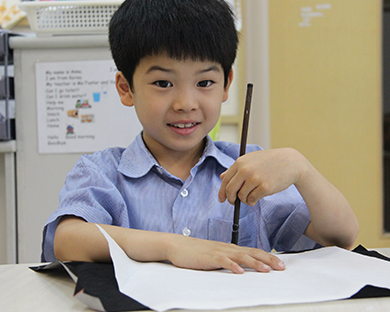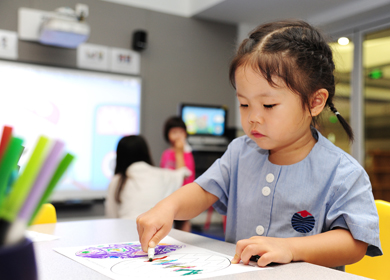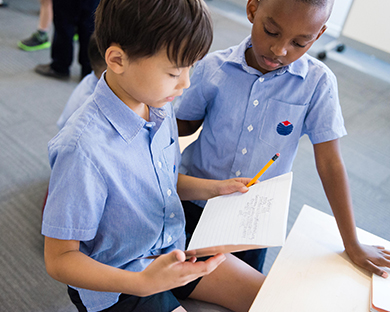Go Back
News
News
eLearning Series: Fostering Independence
News
19 Feb, 2020
10 : 00
One of the Yew Chung International School of Beijing’s Principles and Practices aptly highlights that its purpose and core responsibility as an educational institution is character formation, intended to help students develop into compassionate and responsible individuals.
Independence is certainly an important aspect of character formation. During the past weeks, since we started eLearning, we have seen our community and, most importantly, students rise to the occasion and take eLearning in their stride.
We have seen them acclimate to the new method of learning and begin to practice independence in many ways, creating their new learning environment by themselves or solving problems independently. Rachel George, YCIS-BJ Head of Student Support Service, talks to us extensively about independence and ways in which parents can nurture and encourage it.
The importance of fostering independenceLike in adults, children also stand to benefit from displaying independence and the quality they stand to benefit the most out of holding this trait is confidence. Miss George states that “Fostering independence increases a child’s self-esteem. They become more confident when facing challenges. Once they have experienced independent feelings of success, they begin to believe for themselves that they can do anything!” Although some guidance from parents is always supported, it is critical for moms and dads to allow room for their children to maneuver and solve problems independently. “Independent children have a strong sense of resilience, which allows them to overcome obstacles easily and reduces overall stress.” she adds.
Strategies for parents to foster independent learning.Below are four strategies that parents can use to promote independence during eLearning;
• Allow for time to adjust - Your involvement as a parent will depend on the maturity level of your child. For younger students, this may mean you sitting with them as they attend an online class. For older students, Year 6 and up, they are slightly more independent. However, make sure to debrief with them about their learning and understanding of upcoming tasks. It may be helpful to create a calendar together of due dates for assignments and times for live lessons and check ins.
• Allow for the struggle - fostering independence means allowing our children to experience frustration and perhaps failure when attempting a new task. Embrace mistakes as they learn through trial and error.
• Let them problem-solve - create room for self-reflection by answering open-ended questions about their learning such as: Why do you think…?, How could you say that differently?, How can you/we find the answer?,etc.
• Reflect daily on the lessons and together discuss room for improvement. At the end of each day, sit and reflect on how they believe the lessons went. You may ask questions such as: What was your biggest challenge today? What do you still have questions or uncertainties about? What can we do differently tomorrow? Once you have determined answers to these questions, together create a plan for success for the next day’s activities. Make sure to have your child write it down and post it near their working area. Before you begin lessons the next day, review the plan.
Daily activities in the home that can cultivate independenceWhilst independence can be practiced academically, parents can start by promoting it in the home, while doing daily activities. Some deeds can include simple things such as:
• Allowing your child to choose an outfit
• Let children participate in household chores such as cleaning
• For tweens and teens, independence may mean something different. During this adolescent stage of development, children often crave independence and become less talkative. Allow for room during this stage of development, and focus more on assisting them with problem solving- help them work through the steps while avoiding giving them the answer
The most important thing parents can do, according to Miss George, is to “Validate their feelings of being unsure. Have them describe to you why they are feeling unsure, then encourage them.”
For more tips from Rachel George, click here.












